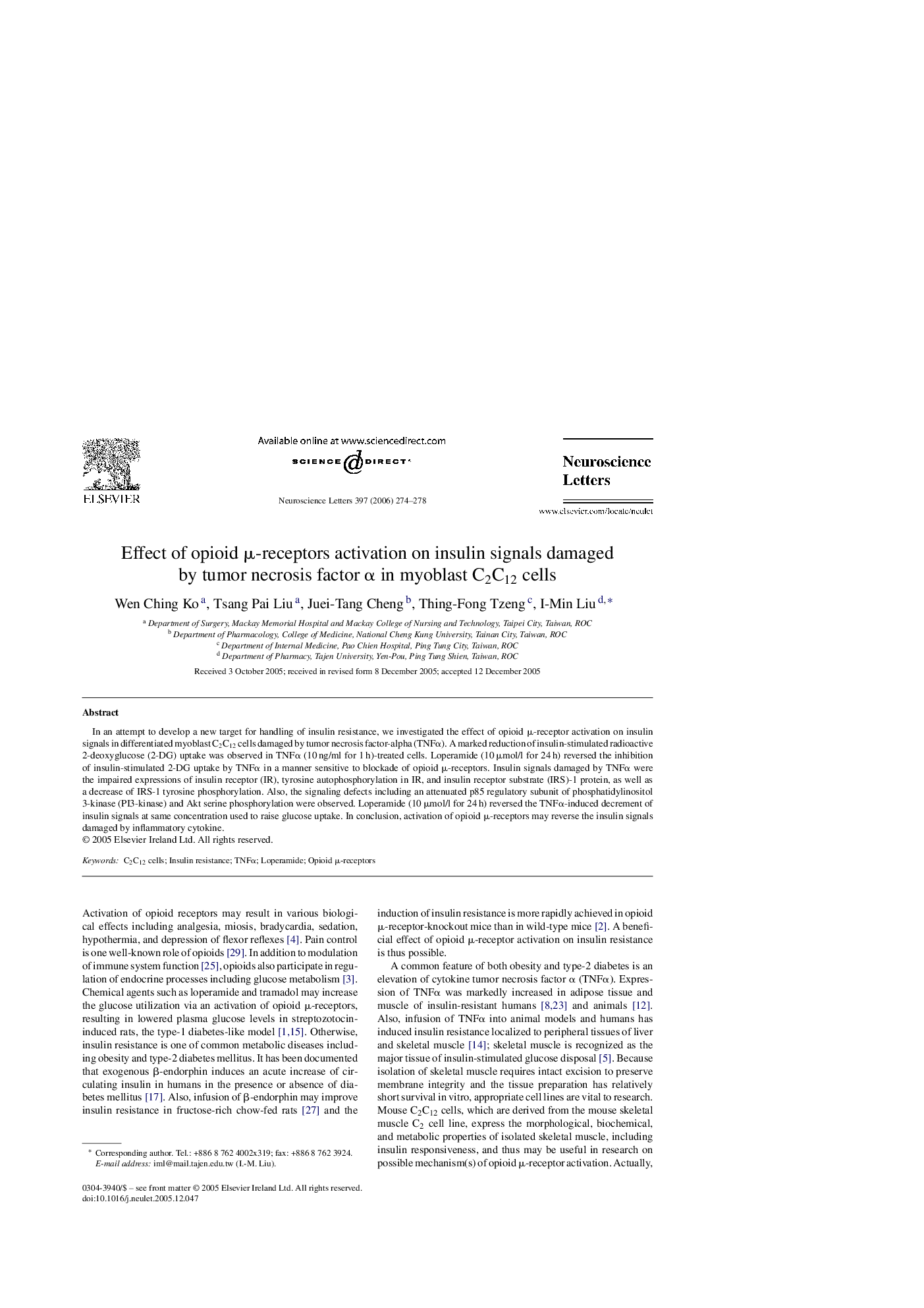| Article ID | Journal | Published Year | Pages | File Type |
|---|---|---|---|---|
| 4350875 | Neuroscience Letters | 2006 | 5 Pages |
Abstract
In an attempt to develop a new target for handling of insulin resistance, we investigated the effect of opioid μ-receptor activation on insulin signals in differentiated myoblast C2C12 cells damaged by tumor necrosis factor-alpha (TNFα). A marked reduction of insulin-stimulated radioactive 2-deoxyglucose (2-DG) uptake was observed in TNFα (10 ng/ml for 1 h)-treated cells. Loperamide (10 μmol/l for 24 h) reversed the inhibition of insulin-stimulated 2-DG uptake by TNFα in a manner sensitive to blockade of opioid μ-receptors. Insulin signals damaged by TNFα were the impaired expressions of insulin receptor (IR), tyrosine autophosphorylation in IR, and insulin receptor substrate (IRS)-1 protein, as well as a decrease of IRS-1 tyrosine phosphorylation. Also, the signaling defects including an attenuated p85 regulatory subunit of phosphatidylinositol 3-kinase (PI3-kinase) and Akt serine phosphorylation were observed. Loperamide (10 μmol/l for 24 h) reversed the TNFα-induced decrement of insulin signals at same concentration used to raise glucose uptake. In conclusion, activation of opioid μ-receptors may reverse the insulin signals damaged by inflammatory cytokine.
Related Topics
Life Sciences
Neuroscience
Neuroscience (General)
Authors
Wen Ching Ko, Tsang Pai Liu, Juei-Tang Cheng, Thing-Fong Tzeng, I-Min Liu,
